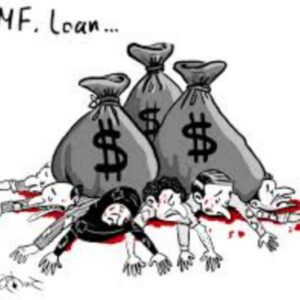
The Nigerian government has obtained a $2.5 billion loan from the International Monetary Fund (IMF), aimed primarily at supporting the proposed 2024 Appropriation Bill. While the funding provides much-needed financial relief for development and budgetary purposes, economic analysts and stakeholders have raised significant concerns about the potential long-term repercussions.
Key Details of the Loan Agreement:
Repayment in Foreign Currency: The loan must be repaid in US dollars, which poses a significant risk given the persistent depreciation of the naira. This could drastically inflate the effective cost of the loan over time.
Concessions Required: The agreement reportedly requires Nigeria to adopt policy reforms, including removing subsidies on oil and electricity. While these measures may improve fiscal sustainability, they could also exacerbate economic hardships for citizens.
Dollar Reserve Requirements: A portion of the loan must remain as foreign reserves, limiting its immediate utility for economic stimulation.
Economic Risks:
Experts have highlighted the risk of increased debt servicing costs due to the naira’s depreciation. If the currency continues to lose value, the real cost of the $2.5 billion loan could balloon to tens of billions of dollars by the time payments begin in 2034. Additionally, the removal of subsidies could lead to higher living costs, further straining households and businesses.
Broader Context:
This loan adds to Nigeria’s already substantial debt burden, raising concerns about its reliance on external financing. While the funds could help bridge immediate fiscal gaps, the long-term impact on economic sovereignty and stability is uncertain. Critics argue that Nigeria should leverage its abundant natural resources and skilled workforce to pursue more sustainable economic strategies rather than accumulating costly foreign debt.
In conclusion, while the IMF loan provides short-term fiscal relief, its long-term implications demand careful management and policy adjustments to avoid exacerbating Nigeria’s debt challenges.
